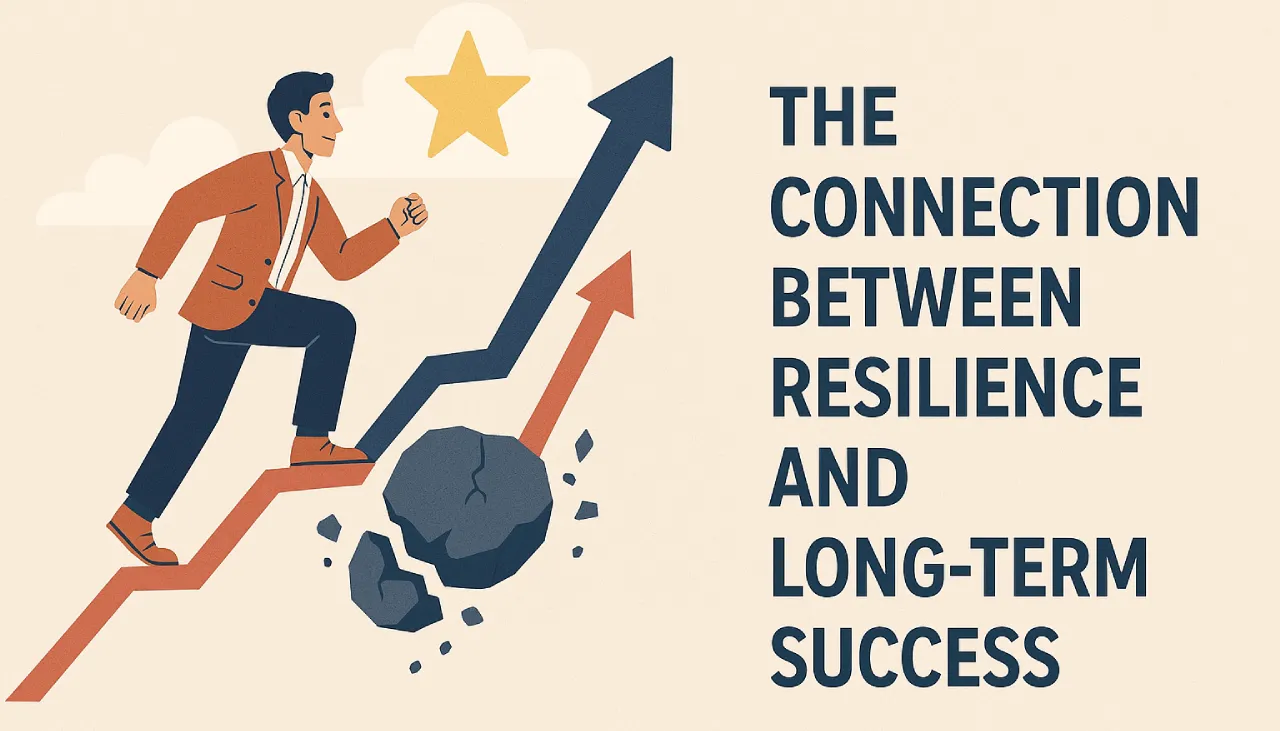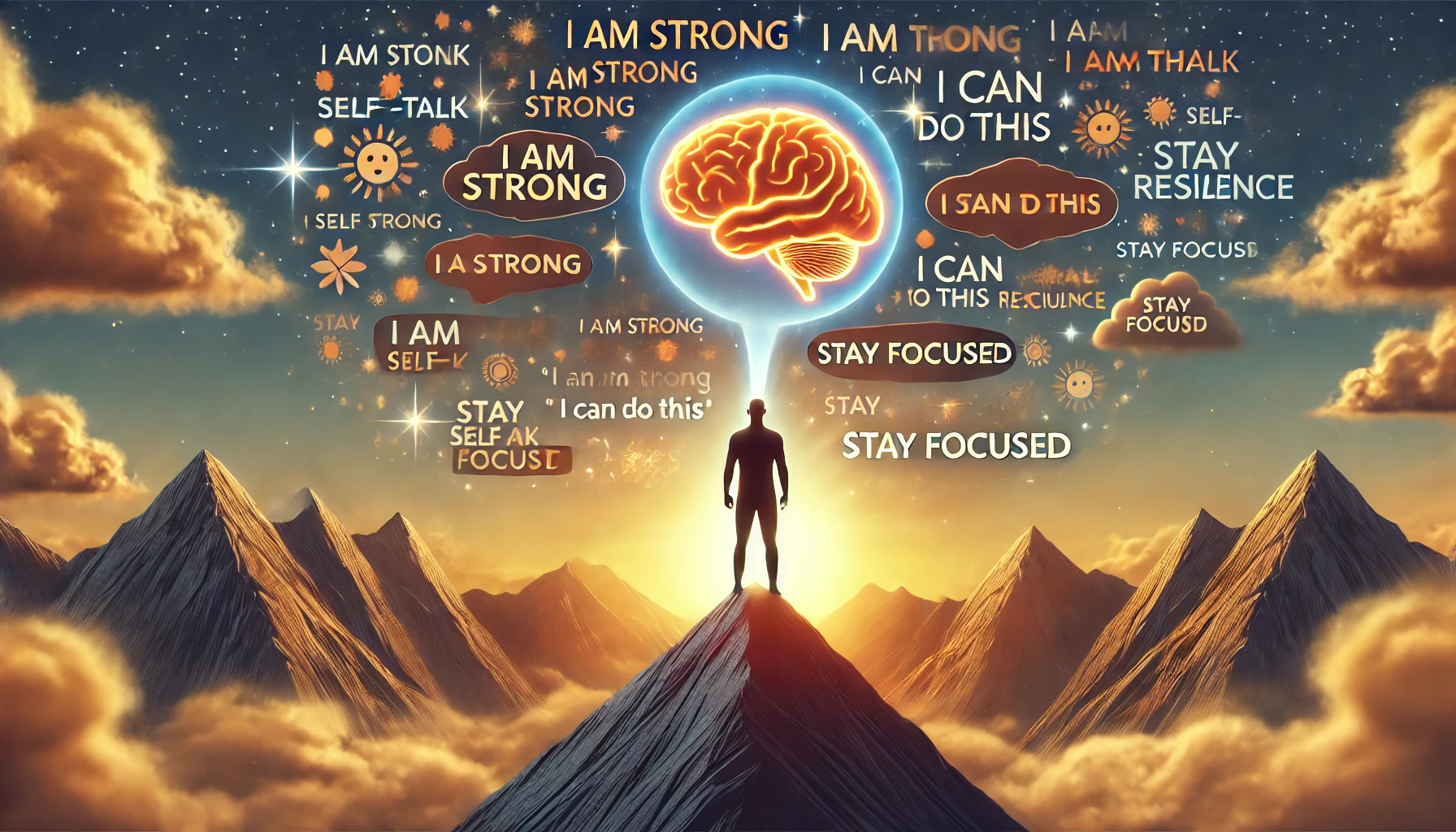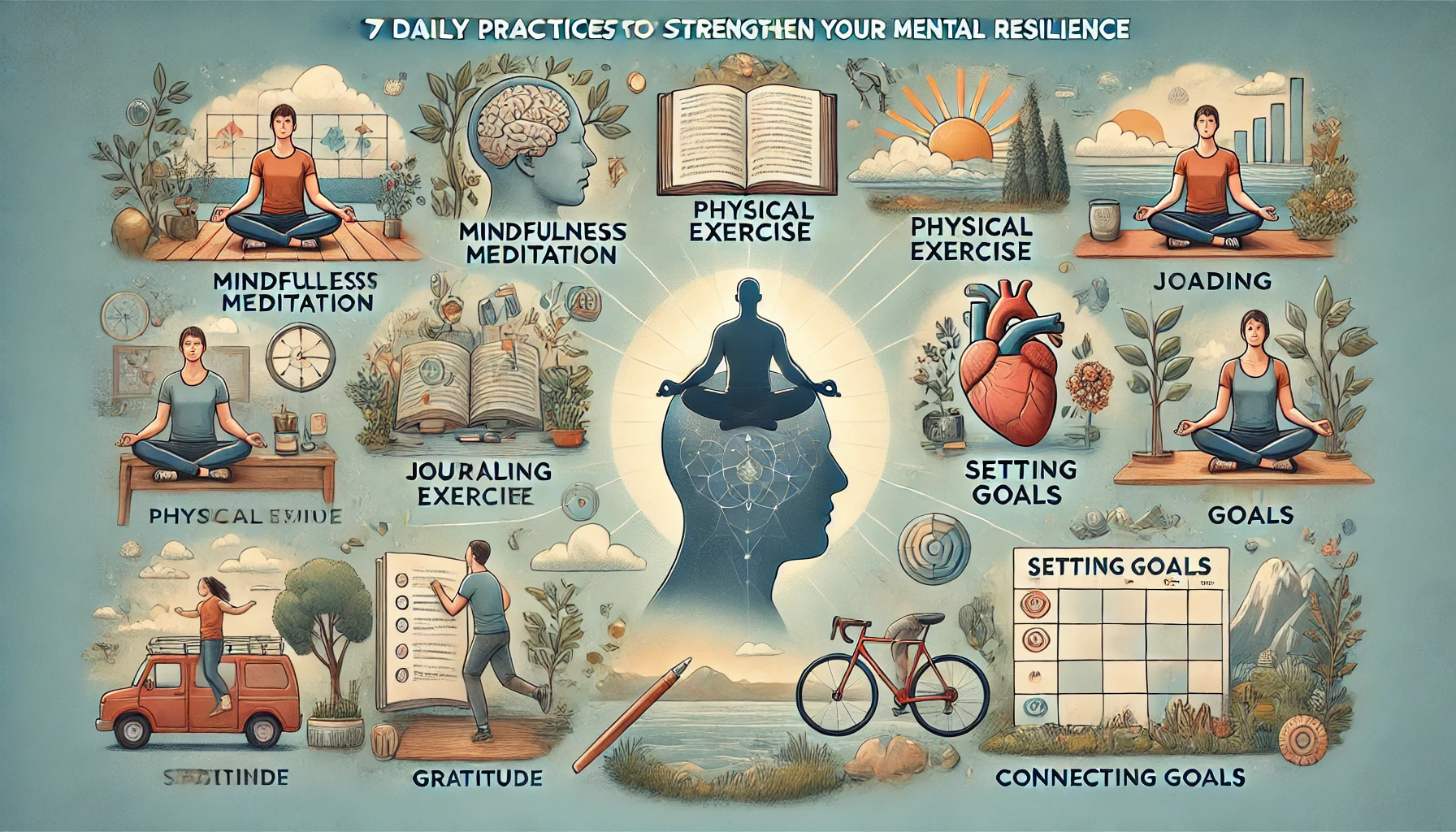Success is not just about talent, intelligence, or luck—it is deeply tied to resilience. The ability to recover from setbacks, adapt to challenges, and persist despite difficulties is what separates those who achieve their goals from those who give up.
Resilience is the mental strength that allows people to push through failures, maintain motivation, and stay committed even when progress is slow. But how exactly does resilience contribute to long-term success? This article explores the science behind resilience, its role in achieving success, and how you can strengthen it to reach your full potential.
1. What Is Resilience and Why Is It Crucial for Success?
📌 Defining Resilience
Resilience is the ability to bounce back from adversity, manage stress effectively, and continue striving toward goals despite setbacks. It is not about avoiding failure but rather about how one responds to failure and difficulty.
Resilient people:
✔ See failures as learning opportunities
✔ Stay optimistic despite difficulties
✔ Adapt to changing circumstances
✔ Maintain focus on long-term goals
📌 How Resilience Contributes to Long-Term Success
| Resilience Trait | How It Affects Success |
|---|---|
| Emotional regulation | Helps maintain focus under pressure |
| Growth mindset | Encourages continuous learning and improvement |
| Self-discipline | Keeps efforts consistent over time |
| Adaptability | Allows for flexible problem-solving |
| Optimism | Sustains motivation in the face of challenges |
A lack of resilience often leads to giving up too soon, feeling overwhelmed by failure, or becoming stuck in negative thinking—all of which can prevent long-term success.
2. The Science Behind Resilience and Success
Resilience is not just a personality trait; it is a skill that can be trained. Neuroscience shows that the brain can develop stronger resilience mechanisms through repeated exposure to challenges and intentional mindset shifts.
🧠 The Role of the Brain in Resilience
| Brain Region | Function | Effect on Resilience |
|---|---|---|
| Prefrontal Cortex | Regulates decision-making and impulse control | Helps maintain logical thinking under stress |
| Amygdala | Processes emotions, especially fear and anxiety | Can trigger panic but can be regulated through training |
| Hippocampus | Responsible for memory and learning | Helps contextualize failures as learning experiences |
By training your brain to handle stress more effectively, you can strengthen resilience and improve your ability to pursue long-term success.
📌 Example: Research shows that individuals who practice mindfulness and cognitive reframing develop stronger prefrontal cortex activity, allowing them to regulate stress and make better long-term decisions.
3. The Link Between Resilience and the Habits of Highly Successful People
Most successful people have faced numerous failures before achieving success. The key difference is that they didn’t let failure define them—they used it to improve and keep moving forward.
📌 Case Studies of Resilience in Success
✔ Elon Musk – Faced multiple failures with Tesla and SpaceX but persisted, learning from each setback.
✔ J.K. Rowling – Rejected by multiple publishers before “Harry Potter” became a global success.
✔ Oprah Winfrey – Overcame a difficult childhood and early career setbacks to become a media mogul.
What do they have in common?
They all faced rejection, criticism, and failure, but their resilience kept them going.
📌 Common Resilience-Building Habits of Successful People
| Habit | How It Builds Resilience |
|---|---|
| Setting long-term goals | Keeps focus on bigger objectives instead of short-term failures |
| Practicing gratitude | Helps maintain a positive mindset despite challenges |
| Adopting a growth mindset | Encourages learning from failure rather than fearing it |
| Maintaining strong social support | Reduces stress and provides motivation during tough times |
| Developing self-discipline | Ensures consistent effort even when motivation fluctuates |
Building resilience requires intentional effort, but over time, these habits make it easier to push through obstacles and achieve long-term success.
4. How to Develop Resilience for Long-Term Success
If resilience is a skill, how can you develop it? Here are practical strategies to build resilience and set yourself up for long-term success.
✅ a) Reframe Failure as Feedback
One of the biggest obstacles to resilience is viewing failure as the end instead of a learning experience.
📌 How to reframe failure:
- Instead of thinking, “I failed,” shift to “What can I learn from this?”
- Recognize that every mistake provides valuable feedback for improvement.
✅ b) Strengthen Mental Toughness with Challenges
Resilience grows through exposure to challenges. If you always avoid discomfort, you never develop the mental strength to handle setbacks.
📌 Strategy: Regularly put yourself in situations that push you slightly beyond your comfort zone—whether it’s learning a new skill, public speaking, or taking on new responsibilities.
✅ c) Develop Strong Emotional Regulation
When facing difficulties, emotions can cloud judgment. Learning to manage emotions effectively is key to staying resilient.
📌 Techniques to regulate emotions:
- Deep breathing exercises – Helps control stress responses.
- Mindfulness and meditation – Strengthens emotional control.
- Journaling – Helps process emotions and gain perspective.
✅ d) Maintain a Long-Term Perspective
Many people give up because they focus too much on short-term struggles instead of the big picture.
📌 How to shift to long-term thinking:
- Set clear long-term goals and remind yourself why they matter.
- Break big goals into smaller milestones to track progress.
- Accept that success takes time, and challenges are part of the journey.
✅ e) Build a Support Network
Resilient individuals don’t face struggles alone—they surround themselves with supportive mentors, friends, and colleagues.
📌 How to build a resilience-supporting network:
- Seek mentors who have overcome similar struggles.
- Connect with positive, growth-minded people.
- Don’t be afraid to ask for help when needed.
5. Measuring Your Resilience: A Self-Assessment
To improve resilience, it’s helpful to assess where you currently stand.
✔ Do you bounce back quickly from failure?
✔ Can you stay focused on long-term goals despite setbacks?
✔ Do you manage stress effectively?
✔ Are you willing to adapt and learn from challenges?
If you struggle in any of these areas, focus on building resilience through the practical techniques outlined above.
Final Thoughts: Resilience Is the Key to Success
Long-term success isn’t just about talent or intelligence—it’s about your ability to keep going despite setbacks.
✅ Resilience helps you stay motivated, adapt to challenges, and persist despite failure.
✅ It is a skill you can develop through mindset shifts, emotional control, and strategic habits.
✅ The most successful people in history have all faced obstacles—but their resilience set them apart.
If you train your mindset, habits, and emotional strength, you will build the resilience needed to achieve long-term success in any area of life. 🚀












Leave a Reply